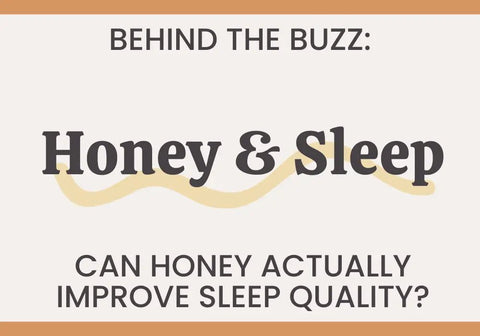How Long Does Raw Honey Last?
Raw honey, with its golden hue and rich, natural sweetness, is a kitchen staple cherished by many. But how long does raw honey last, and can it go bad? Understanding the shelf life and storage of raw honey can help you make the most of this natural wonder.
Does Raw Honey Go Bad?
The short answer is no, raw honey does not go bad. Unlike other foods, raw honey doesn't really expire. This is due to its unique chemical composition, which makes it difficult for bacteria to grow. Honey's low water content and high acidity prevent the growth of other organisms too, ensuring it remains unspoiled and safe to eat for years, even centuries.
What is the Shelf Life of Raw Honey?
Raw honey, when stored properly, can last indefinitely. Archaeologists have discovered pots of honey in ancient Egyptian tombs that are over 3,000 years old and still perfectly edible. The key to honey's long shelf life lies in its natural properties:
- Low Water Content: Honey's low moisture content makes it difficult for bacteria and yeast to grow.
- High Acidity: The acidic pH of honey further inhibits the growth of microorganisms.
- Natural Preservatives: Honey naturally contains preservatives like hydrogen peroxide, which adds to its longevity.
Does Raw Honey Spoil?
While raw honey doesn't spoil, it can undergo changes over time. These changes are natural and do not mean the honey has gone bad. Common changes include crystallization and separation.
Why is My Honey Hard?
Crystallization, or granulation, is a natural process where honey becomes solid or semi-solid. This occurs because honey contains more sugar than can remain dissolved. When the natural sugar present in honey forms crystals, the honey becomes hard. This doesn't harm the honey at all. In fact, many people prefer it this way because it makes the honey taste sweeter.
How to Fix Crystallized Honey: To return crystallized honey to its liquid state, gently warm the jar in a warm water bath over low heat on the stove. Make sure the water doesn't reach up to the edge of the jar and avoid using high heat or a microwave, as excessive heat can destroy honey's beneficial enzymes and nutrients.
Why Did My Honey Separate?
Separation in honey, often seen as a layer of liquid on top of crystallized honey, is also natural. This occurs when honey is stored in cooler temperatures, causing some of the sugars to crystallize faster than others. Simply stirring the honey or gently warming it can recombine the separated layers.
How to Store Raw Honey Properly
To maximize the shelf life and maintain the quality of raw honey, follow these storage tips:
- Keep it Sealed: Store honey in a tightly sealed container to prevent moisture absorption.
- Cool and Dry: Store honey in a cool, dry place away from direct sunlight. Room temperature is ideal.
- Avoid Contamination: Use a clean, dry spoon to scoop honey to avoid introducing moisture or contaminants. Introducing other things to the honey, even if it's just water, can change the environment and introduce the possibility of spoiling.
Final Thoughts
Raw honey is a remarkable natural product with an indefinite shelf life when stored correctly. While it can crystallize or separate over time, these changes are natural and do not affect its quality or safety. By understanding how to store and care for your honey, you can enjoy its delicious flavor and health benefits for years to come.
For more insights on the wonders of raw honey, explore our post on What is Raw Honey?.




